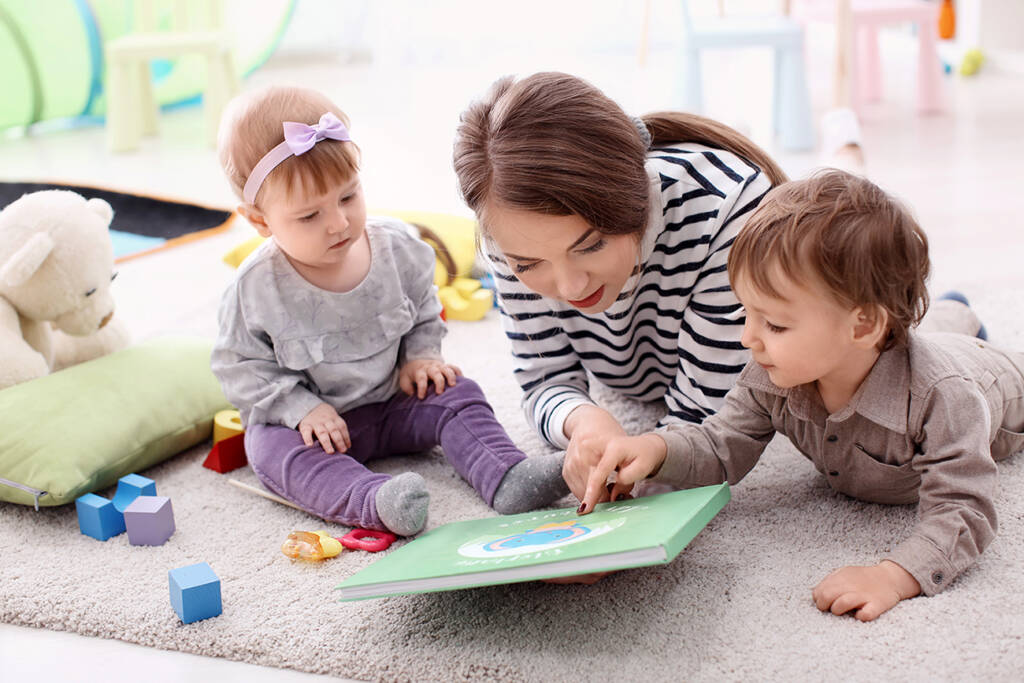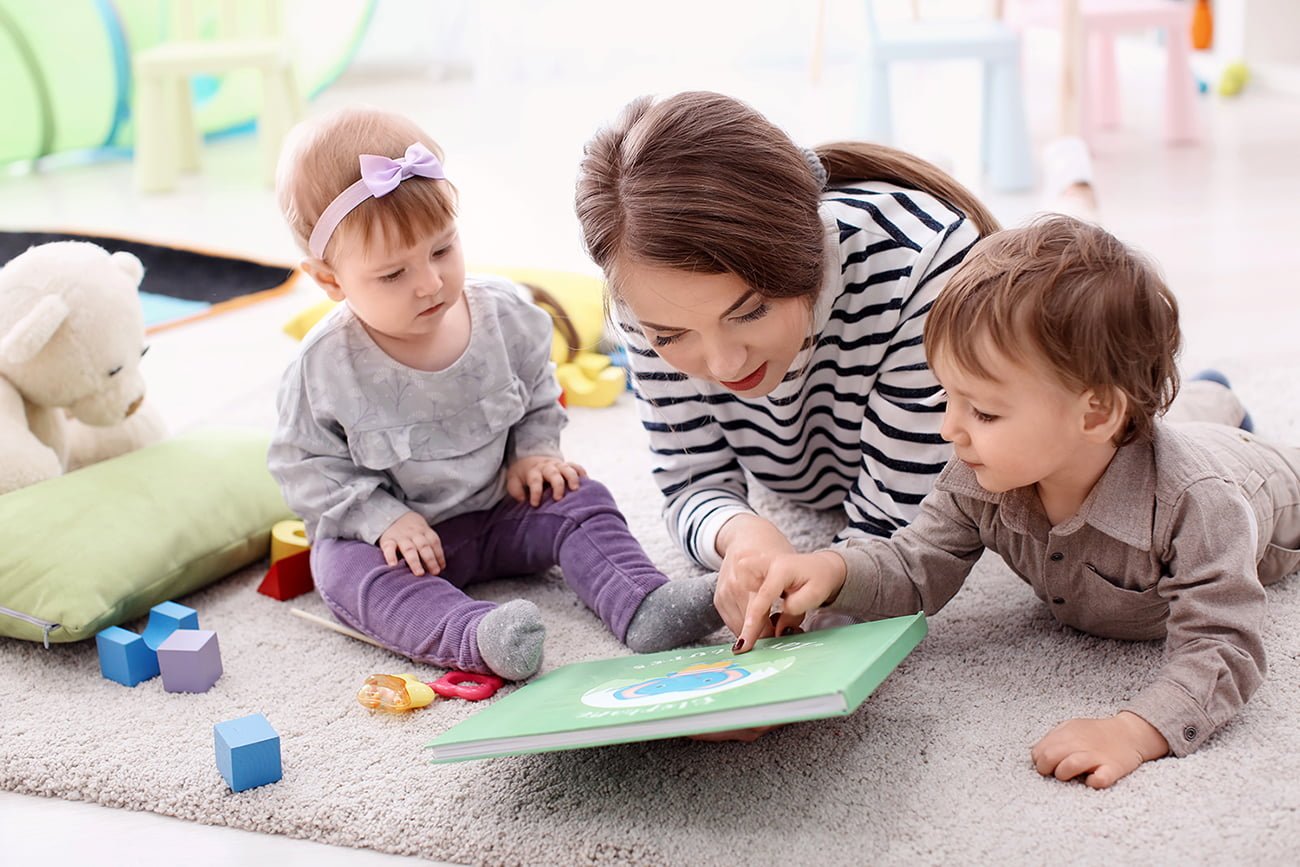Importance of Early Literacy
Early literacy is the foundation for a child’s academic success and lifelong learning. It encompasses the skills and knowledge that precede formal reading and writing, such as listening, speaking, and understanding the basics of print and books. Promoting early literacy from infancy is crucial as it sets the stage for a child’s educational journey and cognitive development.
Overview of Early Literacy Development
Early literacy development begins at birth and involves gradually acquiring the ability to communicate, understand language, and recognize letters and words. This development is influenced by interactions with caregivers, exposure to books, and participation in language-rich activities.
Purpose of the Article
This article aims to provide parents and caregivers with practical strategies and insights to promote early literacy in babies. From understanding the basics of early literacy to incorporating engaging activities, this guide offers a comprehensive approach to fostering a love of reading from an early age.
Understanding Early Literacy
Definition of Early Literacy
Early literacy refers to the pre-reading and writing skills that children develop before they learn to read and write. These skills include listening, speaking, vocabulary, narrative skills, letter knowledge, and print awareness.
Key Components of Early Literacy
Key components of early literacy include:
- Phonological Awareness: Recognizing and manipulating sounds in spoken language.
- Vocabulary: Knowing the names of things, feelings, concepts, and ideas.
- Print Awareness: Understanding that print carries meaning and recognizing print in the environment.
- Narrative Skills: The ability to describe things and events and tell stories.
- Letter Knowledge: Recognizing letters and knowing their names and sounds.
How Early Literacy Develops
Early literacy develops through daily interactions with caregivers, exposure to books, and participation in language-rich activities. Babies start by listening to spoken language, mimicking sounds, and gradually understanding words and concepts. Consistent exposure to reading and storytelling helps solidify these skills.
Benefits of Early Literacy
Cognitive Development
Engaging in early literacy activities stimulates brain development and enhances cognitive abilities. Reading and storytelling introduce new concepts and ideas, fostering critical thinking and problem-solving skills.
Language Skills
Early literacy promotes language development by expanding vocabulary, improving comprehension, and enhancing communication skills. Babies exposed to a rich language environment are more likely to develop strong language abilities.
Social and Emotional Growth
Reading and interacting with books can strengthen the bond between parent and child, providing a sense of security and emotional well-being. Stories often introduce characters and scenarios that help children understand and express emotions.

Parental Role in Early Literacy
Importance of Parental Involvement
Parents play a vital role in promoting early literacy. Their engagement and enthusiasm for reading can significantly influence a child’s interest in books and language. Consistent parental involvement helps create a nurturing environment for literacy development.
Creating a Literacy-Rich Environment
A literacy-rich environment is one where books and print materials are readily available. Setting up a cozy reading nook, filling it with a variety of books, and integrating reading into daily routines can stimulate a baby’s interest in literacy.
Modeling Reading Behavior
Children learn by observing their parents. When parents read regularly, it sets a positive example. Demonstrating a love for books and reading aloud to babies shows them that reading is enjoyable and valuable.
Reading to Your Baby
When to Start Reading
It’s never too early to start reading to your baby. Even newborns benefit from hearing their parents’ voices and seeing pictures in books. Early exposure to reading fosters a love for books and aids in language development.
Choosing Appropriate Books
Selecting age-appropriate books is crucial. For babies, choose books with:
- Bright Colors and Bold Pictures: Captivating visuals to hold their attention.
- Simple Text: Short, repetitive phrases that are easy to follow.
- Interactive Elements: Textures, flaps, and mirrors to engage sensory exploration.
Reading Techniques for Babies
Effective reading techniques include:
- Pointing and Naming: Point to pictures and name objects to build vocabulary.
- Using Expression: Vary your voice to make the story exciting and engaging.
- Interactive Questions: Ask simple questions and encourage your baby to respond with sounds or gestures.
Interactive Literacy Activities
Storytelling and Narration
Storytelling goes beyond reading books. Narrate daily activities, describe surroundings, and create stories from imagination. This helps develop listening skills and enriches vocabulary.
Sing-Alongs and Rhymes
Songs and rhymes are excellent for early literacy. The rhythm and repetition help babies recognize patterns in language. Incorporate finger plays and actions to make it more interactive.
Interactive Play and Learning
Incorporate literacy into playtime with activities such as:
- Puppet Shows: Use puppets to act out stories.
- Alphabet Games: Introduce letters through playful activities.
- Picture Cards: Use cards to teach words and concepts.
Encouraging Language Development
Talking to Your Baby
Consistent verbal interaction is key. Talk to your baby throughout the day, describing actions, objects, and feelings. This exposure helps build a robust vocabulary and understanding of language.
Expanding Vocabulary
Introduce new words regularly. Use descriptive language and label objects and actions in your environment. Repetition and reinforcement help solidify new vocabulary.
Encouraging Babbling and First Words
Respond to your baby’s babbling and early words. Encourage them to repeat sounds and words. Celebrate their attempts at communication, which boosts their confidence and willingness to speak.
Building a Home Library
Selecting Age-Appropriate Books
Choose books that match your baby’s developmental stage. For infants, board books with simple pictures and minimal text are ideal. As they grow, introduce more complex stories and concepts.
Organizing Your Home Library
Create an organized and inviting home library:
- Accessible Shelves: Place books within your baby’s reach.
- Categorize Books: Group books by theme, size, or type.
- Rotate Books: Keep the collection fresh by regularly rotating books.
Rotating Books to Maintain Interest
Regularly rotating books prevents boredom and keeps your baby engaged. Introduce new books and reintroduce favorites to maintain excitement and interest in reading.
Using Technology for Literacy
Educational Apps for Babies
Educational apps can supplement traditional reading. Choose apps that focus on:
- Interactive Stories: Engaging narratives with interactive elements.
- Alphabet and Phonics Games: Fun ways to learn letters and sounds.
- Music and Rhymes: Songs that teach language skills.
Screen Time Guidelines
Follow screen time guidelines to ensure a balanced approach:
- Limited Duration: Keep screen time short and interactive.
- Quality Content: Select high-quality, educational content.
- Co-Viewing: Engage with your baby during screen time to enhance learning.
Integrating Technology with Traditional Reading
Combine technology with traditional reading:
- E-Books: Use e-books with interactive features.
- Audio Books: Play audio books during travel or quiet time.
- Story Apps: Use story apps to complement physical books.
Literacy Milestones
Recognizing Early Literacy Milestones
Monitor your baby’s progress by recognizing key milestones:
- 6-12 Months: Interest in books, recognizing pictures.
- 12-18 Months: Turning pages, babbling while looking at books.
- 18-24 Months: Pointing to pictures, attempting to repeat words.
Tracking Your Baby’s Progress
Keep a journal of your baby’s literacy milestones. Note their favorite books, new words, and interactions with stories. This helps track their development and identify areas for further encouragement.
Supporting Milestone Achievement
Support your baby’s literacy milestones by:
- Providing Diverse Books: Offer a variety of genres and topics.
- Encouraging Exploration: Let your baby explore books independently.
- Celebrating Achievements: Praise and encourage their progress.
Overcoming Challenges
Common Literacy Challenges
Identify and address common literacy challenges:
- Disinterest in Books: Find engaging, interactive books.
- Short Attention Span: Read in short, frequent sessions.
- Speech Delays: Consult a pediatrician or speech therapist.
Strategies for Reluctant Readers
Encourage reluctant readers with these strategies:
- Choose Engaging Topics: Select books on subjects they enjoy.
- Interactive Reading: Use voices and actions to make reading fun.
- Set a Routine: Establish a consistent reading time.
Seeking Professional Help
If challenges persist, seek professional help:
- Pediatrician: For developmental concerns.
- Speech Therapist: For language delays.
- Literacy Specialist: For tailored reading strategies.
Community Resources
Local Libraries and Storytimes
Take advantage of community resources:
- Storytime Sessions: Participate in library storytime.
- Book Lending: Borrow a variety of books from the library.
- Literacy Events: Attend literacy-themed community events.
Literacy Programs and Workshops
Join literacy programs and workshops:
- Parent Workshops: Learn strategies for promoting literacy.
- Baby Literacy Classes: Engage in structured literacy activities.
- Reading Clubs: Connect with other parents and babies.
Online Resources and Support Groups
Utilize online resources:
- Educational Websites: Access free literacy resources.
- Parent Forums: Share experiences and tips with other parents.
- Virtual Storytimes: Join online story sessions.
Cultural Considerations in Literacy
Multilingual Families
Promote literacy in multilingual families:
- Dual Language Books: Use books in multiple languages.
- Bilingual Storytelling: Read and tell stories in both languages.
- Cultural Celebrations: Incorporate cultural stories and traditions.
Incorporating Cultural Stories and Traditions
Introduce cultural stories to enrich literacy:
- Folk Tales and Myths: Share traditional stories.
- Family History: Narrate family stories and heritage.
- Cultural Festivals: Celebrate with themed books and activities.
Celebrating Diversity in Literature
Promote diversity through literature:
- Inclusive Books: Choose books featuring diverse characters.
- Global Stories: Introduce stories from around the world.
- Cultural Literacy: Foster an appreciation for different cultures.
The Role of Play in Literacy
Importance of Play for Literacy Development
Play is crucial for literacy development:
- Imagination: Encourages creative thinking and storytelling.
- Language Skills: Enhances vocabulary through play scenarios.
- Social Interaction: Develops communication skills with peers.
Play-Based Learning Activities
Incorporate play into literacy learning:
- Role-Playing: Act out stories with props and costumes.
- Alphabet Blocks: Build words and letters.
- Story Puppets: Create puppets to tell stories.
Encouraging Imaginative Play
Foster imaginative play to support literacy:
- Story Creation: Encourage your child to create their own stories.
- Dress-Up: Use costumes to act out different characters.
- Adventure Play: Create scenarios based on book themes.
Creating a Literacy Routine
Daily Reading Habits
Establish daily reading habits:
- Bedtime Stories: Make reading part of the bedtime routine.
- Morning Reading: Start the day with a book.
- Reading Breaks: Incorporate short reading sessions throughout the day.
Integrating Literacy into Everyday Activities
Use everyday activities for literacy opportunities:
- Grocery Shopping: Read labels and lists together.
- Cooking: Follow recipes and talk about ingredients.
- Outings: Describe surroundings and signs.
Making Reading a Family Affair
Involve the whole family in reading:
- Family Reading Time: Set aside time for family reading.
- Book Discussions: Talk about books and stories.
- Reading Challenges: Set reading goals and celebrate achievements.
Literacy and Special Needs
Adapting Literacy Activities for Special Needs
Adapt activities to meet special needs:
- Sensory Books: Use tactile and interactive books.
- Visual Supports: Incorporate visual aids and picture schedules.
- Modified Texts: Use simplified and adapted texts.
Accessible Books and Resources
Ensure accessibility for all children:
- Braille Books: For visually impaired children.
- Audiobooks: For children with reading difficulties.
- Sign Language: Incorporate sign language in reading.
Support Networks for Special Needs Families
Connect with support networks:
- Special Needs Organizations: Access resources and support.
- Parent Groups: Share experiences and advice.
- Professional Guidance: Seek advice from specialists.
Benefits of Reading Aloud
Strengthening Parent-Child Bond
Reading aloud strengthens the bond between parent and child:
- Shared Experience: Creates quality time together.
- Emotional Connection: Provides comfort and security.
- Interactive Reading: Engages both parent and child.
Enhancing Listening Skills
Reading aloud improves listening skills:
- Active Listening: Encourages attentive behavior.
- Comprehension: Helps understand and retain information.
- Following Along: Develops the ability to follow narratives.
Promoting Concentration and Focus
Reading aloud promotes concentration:
- Engaging Stories: Captures attention.
- Story Continuity: Encourages focus on the narrative.
- Interactive Elements: Keeps the child engaged.
Incorporating Literacy into Daily Life
Labeling Household Items
Label household items to promote literacy:
- Name Tags: Label common items with their names.
- Picture Labels: Use pictures for younger children.
- Interactive Labels: Encourage children to interact with labels.
Using Daily Routines for Literacy Opportunities
Incorporate literacy into daily routines:
- Morning Routine: Talk about the day’s plans.
- Mealtime: Discuss food and recipes.
- Bedtime: Recap the day’s activities and read a story.
Encouraging Curiosity and Questions
Foster curiosity and questions:
- Open-Ended Questions: Encourage exploration and discussion.
- Curiosity-Driven Activities: Engage in activities that prompt questions.
- Book-Based Exploration: Use books to spark interest in new topics.
Literacy and Health
Connection Between Literacy and Health Outcomes
Promote literacy for better health outcomes:
- Health Literacy: Understanding health information.
- Healthy Habits: Encouraging healthy lifestyle through books.
- Mental Health: Reducing stress and promoting well-being through reading.
Promoting Healthy Literacy Habits
Encourage healthy literacy habits:
- Balanced Activities: Combine reading with physical activities.
- Nutritional Books: Use books to teach about healthy eating.
- Sleep Hygiene: Promote good sleep habits through bedtime stories.
Using Health Visits for Literacy Promotion
Utilize health visits to promote literacy:
- Doctor’s Office Reading: Read books in the waiting room.
- Health Discussions: Talk about health topics through stories.
- Resource Recommendations: Get book recommendations from health professionals.

Long-Term Impact of Early Literacy
Academic Success
Early literacy lays the groundwork for academic success:
- Reading Proficiency: Builds strong reading skills.
- School Readiness: Prepares for school curriculum.
- Lifelong Learning: Instills a love for learning.
Lifelong Love of Reading
Early exposure fosters a lifelong love of reading:
- Passion for Books: Develops an intrinsic interest in reading.
- Continuous Growth: Encourages ongoing personal development.
- Family Tradition: Creates lasting family reading traditions.
Career and Life Skills
Early literacy contributes to career and life skills:
- Communication: Enhances verbal and written skills.
- Problem-Solving: Develops critical thinking abilities.
- Confidence: Builds self-assurance in learning and communication.
Personal Experiences and Testimonials
Stories from Parents
Hearing from other parents can provide valuable insights:
- Success Stories: Real-life examples of literacy promotion.
- Challenges and Solutions: How other parents overcame obstacles.
- Inspiration: Motivating stories to encourage literacy efforts.
Expert Insights
Experts provide authoritative guidance:
- Pediatricians: Share professional advice on literacy.
- Early Childhood Educators: Offer educational strategies.
- Literacy Advocates: Discuss the importance of early literacy.
Community Success Stories
Community initiatives can be inspiring:
- Local Programs: Successful community literacy programs.
- Partnerships: Collaborations between schools and libraries.
- Impact Stories: Positive outcomes from community efforts.
Government and Educational Organization Recommendations
AAP Guidelines
Follow AAP guidelines for promoting early literacy:
- Reading Aloud: Encourage daily reading aloud.
- Book Access: Ensure access to age-appropriate books.
- Parental Involvement: Stress the importance of parental involvement.
Recommendations from Educational Bodies
Educational organizations offer valuable recommendations:
- Early Literacy Programs: Participate in structured literacy programs.
- Teacher Training: Ensure educators are trained in early literacy.
- Family Engagement: Promote family involvement in literacy activities.
National Literacy Campaigns
National campaigns raise awareness and support literacy:
- Reading Initiatives: Join national reading programs.
- Awareness Campaigns: Support campaigns promoting early literacy.
- Resource Distribution: Participate in book distribution programs.
Future of Early Literacy
Innovations in Early Literacy Education
Explore innovations in early literacy education:
- Digital Learning Tools: Advances in educational technology.
- Interactive Books: Innovations in book design and interactivity.
- Research-Based Practices: Implementing new literacy research findings.
Trends in Literacy Research
Stay informed about trends in literacy research:
- Neuroscience: Understanding brain development and literacy.
- Early Intervention: Importance of early literacy interventions.
- Parental Engagement: Research on effective parental involvement.
Global Literacy Initiatives
Global efforts to improve literacy:
- International Programs: Collaboration for global literacy.
- Support for Developing Countries: Promoting literacy worldwide.
- Global Goals: Aligning with UN Sustainable Development Goals for education.










